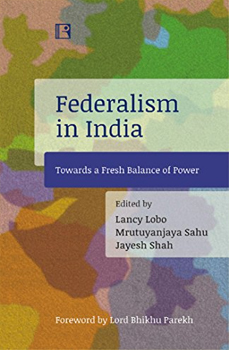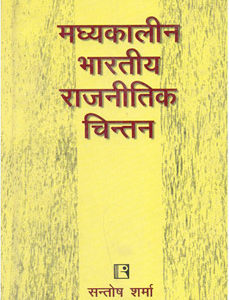FEDERALISM IN INDIA: Towards a Fresh Balance of Power
₹1,095.00 Original price was: ₹1,095.00.₹876.00Current price is: ₹876.00.
25 in stock
Federalism is one of the most important, effective and greatest political institutions of the contemporary world. The federal system has served extremely well for India in terms of promoting democracy, strengthening the national unity and achieving a fair level of economic progress.
However, late 1990s witnessed a weakening of national political parties, emergence of coalition politics and a shift in the centre–state power balance. Politically, however, with the rise of regional parties and coalitions, states seem to have gained an upper hand in many spheres of governance, whereas the centre finds itself restricted when there are serious problems regarding law and order issues, foreign policy matters or fiscal decentralization. The Constitution does not furnish clear guidance in many matters pertaining to centre–state issues like the role of Governor, fiscal distribution and administrative problems on the role of centre in accomplishing effective decentralization. Hence, provisions and articles narrated in the Constitution of India demands revisit as India needs a fresh balance of power looking to the new ‘low’ in centre–state relations. Given the degree of permanency of the federal structure, this volume makes an attempt to consider the questions like: how does the State manage to resolve intergovernmental conflicts effectively; how satisfactory is the mechanism available to overcome backwardness in some regions towards a more equitable distribution of socio-economic goods and services and what kind of relationship is built between village government and the state government and how it strengthens or weakens the federal scheme of governance. The volume critically brings to the fore the fact that the championing of federalism by the regional parties at the state level works against decentralization further down in reality. Chapters in this volume address a wide range of complex issues affecting the centre–state relations in the context of political, social and economic developments.
Contents
1 Introduction / Lancy Lobo, Mrutuyanjaya Sahu and Jayesh Shah
2 Intergovernmental Relations Revisited / Subhash C. Kashyap
3 Indian Federalism / Priyavadan Patel
4 Autonomy and States’ Rights in the Indian Federal Union / Balveer Arora
5 Interface of Local and Higher Governments / S.N. Sangita
6 Whither Decentralization in India? The Interesting Story of a Nobody’s Child 96 / Anil Kumar Vaddiraju
7 Fiscal Federalism in Operation / Tapas Sen
8 Fiscal Decentralization to Subnational Governments (SNGs) in Indian Federalism / Anirudha Barik
9 An Analysis of Fiscal Relation and Adjustment with the Centre / Sangita Agrawal and Dinkar Nayak
10 Federalism and Regionalism in India / Nagindas Sanghavi
11 Federalism and Regionalism in India in the Age of Globalization / Harihar Bhattacharyya
12 Regions in Nation or Nation in Regions / Sajal Nag
13 Cooperative Federalism, Competitive Regionalism and Regional Parties-led Coalition Governments / Biswajit Mohapatra
14 Federalism, Regionalism and States’ Paradiplomacy in India / Prakash Chandra Jha
15 Resource Federalism in India / Ligia Noronha, Nidhi Srivastava, Divya Datt and P.V. Sridharan
16 Internal Security / Dhananjay Tripathi
| Author's Name | |
|---|---|
| Binding | |
| Release Year | |
| Language | |
| Publisher |
Related products
Political Science
Political Science
CRIMINAL JUSTICE ADMINISTRATION: The Relay Race for Criminal Justice
Political Science
Political Science
Political Science
Political Science











